Street Bricklayers (BA16): When dealing with home improvements which require any form of brickwork the customary solution is to get in touch with a competent bricklayer in Street. Not very many property owners in Street are likely to have the self-confidence and aptitude to have a go at this type of work by themselves, and consequently employing an expert is undoubtedly a sensible decision.
You shouldn't be tempted to scrimp with your building tasks around your home and garden by presuming that bricklaying is a straightforward process. The truth is that there are a great number of tricks of the trade and subtleties which need to be learned by any novice DIYer before considering tackling even the most modest brickwork project such as a fireplace for example.
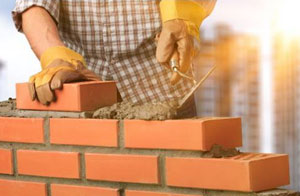
There are also other reasons to emphasise why it's not a good idea to use an untrained or novice bricklayer for your upcoming brickwork project. It isn't simply a case of getting the bricks laid but also of realizing all of the variables that are affected by the process. Examples of this would be that a specialist will know about the significance of ventilation, airtightness and the thermal characteristics of particular components, will be familiar with all the available materials, and which ones would be better suited to any job in question, and will pay attention to environmental factors, humidity regulation, and water runoff.
A typical rookie bricklayer will not be informed about all of these aspects and may therefore produce sub-standard brickwork that's not what you want. Where when it comes to a seasoned tradesperson, he or she will automatically know the correct way to carry out any specific bricklaying job, and will automatically carefully consider all concerns and circumstances that crop up. Merely using any old cowboy is never a good idea, because you really need to get a person you're able to trust for this sort of job. In the final analysis you won't regret using a skilled bricklayer, provided that you are happy to pay a mutually acceptable price to employ them.

It should soon become clear that qualified bricklayers in Street have got all the right training to complete your brickwork in the proper way while abiding by any health and safety laws and should possess all the tools and equipment needed for the process. You will then be able to sit by and watch your bricklaying project takes shape, without any need to get stressed.
Qualified Street bricklayers will likely have gone through rigorous training to get where they are today. This would probably have included starting out as apprentice bricklayers, attending a local college on day release, getting day to day experience on site, and eventually sitting examinations to achieve the necessary qualifications (City & Guilds or NVQ's). Before any work begins they'll call at your home to assess exactly what is needed, offer you peace of mind by giving guarantees for all work carried out, provide you with costings for any work discussed, and provide photos of work they have previously completed.
The foundation and structure of buildings in construction rely on the crucial role played by bricklayers. To be a bricklayer, having a keen eye for detail and the ability to accurately follow architectural blueprints and plans is necessary. Individuals pursuing the physically demanding job of bricklaying need to possess dexterity, stamina and physical strength.
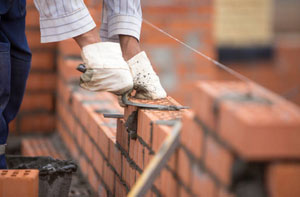
The process of bricklaying involves several key steps. First, the bricklayer must prepare the work area by cleaning and levelling the surface where the bricks are going to be laid. Bricklayers mix mortar, which is a combination of cement, sand and water, to hold the bricks in place. One by one, bricklayers carefully lay and level each brick to create a straight and sturdy structure. Bricklayers must also be able to cut bricks to fit into confined spaces, which requires precision and skill.
Risks are present in bricklaying, which is a skilled trade. Respiratory problems may arise for bricklayers due to exposure to harmful materials, such as chemicals and dust from the mortar. They may also be at risk of injury from falls, as they often work at heights on ladders or scaffolds. Stringent health and safety regulations and the use of protective gear, including hard hats, safety goggles and gloves, are necessary for bricklayers to reduce these risks.
When looking for a nearby Street bricklayer, it's an added bonus if you can locate one who is associated with a relevant professional trade body, such as the Guild of Builders and Contractors, the National Federation of Builders (NFB), the British Standard Institution (BSI), the Federation of Master Builders or the Fair Trade Association. Having an affiliation like this should confirm your confidence in your choice of bricklayer, and prove that they actually do have the necessary qualifications and experience. It also provides you with a resource for complaint, in the event that they do an inferior job.
Bricklaying can be done in Street and also in nearby places like: Beckery, West Pennard, Butleigh Wootton, High Ham, Meare, Lower Leigh, Walton, Butleigh, Ashcott, Northover, Compton Dundon, Overleigh, Shapwick, Baltonsborough, Stone Hill, Glastonbury, and in these postcodes BA16 0AH, BA16 0LY, BA16 0AX, BA16 0GH, BA16 0LS, BA16 0EP, BA16 0DF, BA16 0AY, BA16 0AZ, and BA16 0HU. Local Street bricklayers will likely have the postcode BA16 and the dialling code 01458. Verifying this will guarantee you are accessing locally based bricklayers. Street home and business owners are able to utilise these and lots of other bricklaying related services.
Brick Cleaning Street
Before you begin cleaning your brick walls in Street, ensure that you are using the correct cleaning solution. Muriatic acid can cause severe damage to bricks, and must be used with care. Always follow manufacturer directions for the recommended dilution ratios. Also, you should never use metallic brushes or high-pressure washers, as these can change the look of your brickwork. If you're unsure of how to clean brick walls, speak to a professional Street bricklayer.
Before you start, make certain that you've got goggles, gloves and other safety equipment. A boric acid cleaner can be applied using a sponge or brush. After you have mixed the acid cleaner, you should thoroughly rinse the bricks with water. Do not allow the solution sit on the bricks for too long, and scrub them with small, circular motions until the bricks are clean.
Using a bleach mixture is another effective technique for cleaning brick. This solution will get rid of any mildew, mould and moss that has built up on your brickwork. You can use a sponge to clean the hard-to-reach areas. A natural-bristle brush could also be used to remove the obstinate staining.
While you can use a normal garden hose and spray nozzle to clean the outside of the brick, you should avoid applying a bleach solution to areas that get hardly any sunlight. Moss and mould will be more likely to adhere to a brick surface if it hasn't been exposed to sunlight, so you should soak the brick before applying the bleach solution to it. It is also imperative that you use a natural-bristle brush to clean the brick. Wire brushes can leave scuffs and scratches behind that can damage the brick and leave unsightly marks. If unsure always seek the expertise of a professional bricklayer.
RSJ Installation
If a new home is being constructed, or when structural alterations are being done on an existing building in Street, it might be necessary to install RSJ steel support beam - in particular if you are removing a load bearing wall. Most Street bricklayers will be willing to help you out with this and will come armed with the required know-how to do this task correctly.
It will be mandatory to get an architect or structural engineer involved when you're installing an RSJ, because building regulations approval will have to be obtained, and a qualified and experienced builder or bricklayer must carry out the installation of this item. The integrity of the structure will almost certainly be affected by any errors in the installation, and in the eventuality of a collapse, severe injuries or possibly even fatalities could occur.
What does the term RSJ mean? - Rolled Steel Joist. (Tags: Installing an RSJ Street, Installing RSJs Street, RSJ Installation Street).
Brick Fireplaces
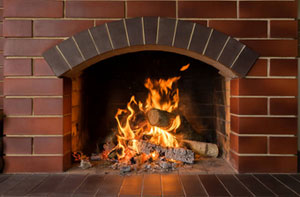
A brick fireplace is a fantastic feature for any home in Street. A brick built fireplace can be a welcoming source of comfort on those cold, dark winter's nights, and is a feature that many property owners dream of in their homes.
If you want to renovate an existing brick fireplace, or are looking to put in a brand new one in your property, a certified Street bricklayer will be glad to offer you guidance and advice. Refurbishments can be complicated given that the bricks are an integral part of the base that supports your chimney. You are going to need special supporting equipment to keep the structural integrity intact if you are removing any of the fireplace bricks during remodelling work. A qualified bricklayer in Street can perform repairs and renovations in a safe, controlled manner, to leave you with a stunning looking fireplace.
Garden Walls Street

Enhancing the look of your outdoor area and defining your property's limits can be achieved by constructing a brick garden wall. However, the success of your project depends on the skills of the bricklayer you hire. Here are several suggestions to help you find the ideal candidate for the job:
- Assess the quality of their craftsmanship and see if they have experience working on similar projects by reviewing their previous work.
- Carefully consider your options and conduct thorough research to locate the best professional.
- It's crucial to choose a bricklayer who is dependable, punctual, and takes pride in delivering high-quality work.
- Before hiring, confirm that the bricklayer has obtained all necessary licenses, certficiations and insurance cover.
- Talk to friends and relatives who have recently had similar projects and ask for referrals.
- Obtain a written quote from each professional, providing a comprehensive breakdown of the costs. By doing this, you can compare prices and make sure that you are receiving a reasonable offer.
- To ensure that your questions are answered and concerns are addressed, schedule a site assessment with the professional.
It's vital to select the right bricklayer for building your brick garden wall. It's important to consider their reputation, experience, and portfolio of past work. Don't be afraid to ask questions and negotiate terms.
Repointing Street
You see, repointing is quite an essential step for looking after the strength and aesthetic of your brickwork, whether that's on a chimney, the outside of your home, or even a garden wall. The mortar between bricks can weaken due to weather exposure over time, which creates gaps and risks the integrity of the structure by allowing water in. Repointing is where you carefully remove the old mortar and put in new material, bringing the wall back to its initial state. This process not only bolsters the brickwork but also makes it look neater and more maintained.

Repointing really brings to the table the great benefit of avoiding expensive repairs in the long run. When the mortar starts to break down, it leaves your property vulnerable to issues like damp, frost damage, or even structural instability if it's not dealt with. By opting for repointing when needed, you can prevent these kinds of problems and make sure that your brickwork holds up well against the weather for many years to come. This is especially vital for older buildings in Street, where traditional brickwork is such a significant feature, as it helps preserve their unique character and boosts their durability at the same time.
For repointing, hiring a professional is highly advisable since it's a job that needs a precise touch to ensure the bricks remain undamaged. A proficient bricklayer or repointing specialist will effectively match the new mortar with the current one, resulting in a beautifully integrated finish that complements the existing structure. With careful professional attention, not only will repointing protect your property in Street, but it will also keep it looking fantastic. (Tags: Repointing Street).
Mortar Joints
Among the many forms of mortar joint that are employed in stonemasonry and brickwork, the most frequently encountered are the recessed joint, the weathered joint, the bucket handle joint (or concave), the flush joint, the concave joint, the beaded joint, the vee joint and the gravevine joint. The most commonly used mortar joint in the UK is the concave (or bucket handle, whereby the exposed face of the joint is compacted creating the most resilient profile you can get.
Ashlar Walling Street
Achieving a balance between aesthetics and strength, ashlar walling is a time-tested construction technique. Finely cut stones, each boasting identical dimensions, are laid in regular courses with minimal mortar. This meticulous approach creates a visually striking and structurally sound wall. Ashlar masonry's enduring appeal is evident in countless historical structures and monuments, showcasing its functionality and timeless elegance.
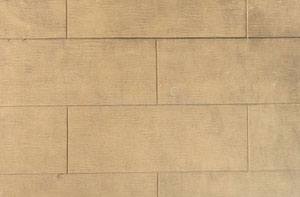
Meticulous planning and skilled craftsmanship are essential in creating ashlar walls. Stones are chosen and dressed with precision to achieve smooth surfaces and exact dimensions. This reduces the amount of mortar needed, resulting in a durable and seamless wall. The technique is commonly employed in the construction of important edifices, including churches, castles, and temples, where both strength and beauty are paramount.
Modern buildings in Street can still look classy with ashlar walls. These walls are like timeless treasures - they're elegant and tough, so they're great for fixing up old places or building new ones. The old-fashioned style fits in perfectly with modern designs, which shows how awesome ashlar walls truly are. Even though we've got fancy new building stuff now, the skill it takes to make ashlar walls is still really impressive. It's a reminder that buildings can be both useful and beautiful. (Ashlar Walling Street)
Bricking-up Windows and Doors
A construction practice that often involves bricking up windows and doors is closing off openings in a building's facade. This could be for aesthetic, structural or functional reasons. This process requires that skilled craftsmanship, meticulous planning, and adherence to certain principles be followed in order to achieve a successful outcome.
Why property owners in Street consider bricking up doors and windows is a matter of various reasons. To alter the internal layout of a space is one of the most commonplace justifications for doing this. To create a more efficient interior configuration, a householder might choose to eliminate a window or door in home remodeling. This is particularly relevant in the case of converting rooms or repurposing spaces for different uses.
Bricking up windows and doors can also dramatically enhance energy efficiency. Larger energy costs may result from older or improperly designed doors and windows that allow heat loss and draughts. The overall insulation of the building can be enhanced by bricking up these openings, resulting in better temperature regulation and reduced energy consumption. (39041 - Bricking-Up Windows and Doors in Street)
Bricklaying Tasks Street

Street bricklayers will likely help with architectural bricklaying, stonework, brickwork steps, brick fence pillars, cornice brickwork, flintwork, RSJ installation, brick interior walls, raised brickwork ponds, conservatory bases, radius walls, brick driveways, crack stitching in Street, brick piers, brick pedestals, brick buttresses, chimney breast removal, brickwork waterproofing in Street, brick BBQs in Street, glass blockwork, opening-up doorways, brick walls in Street, brick arches in Street, damaged brickwork replacement in Street, serpentine walls, commercial bricklaying, brick chimneys, brick landscaping in Street, brick home extensions, brick bay windows and other bricklaying tasks in Street. These are just a few of the tasks that are carried out by bricklayers. Street providers will be happy to tell you about their entire range of bricklaying services.
Bricklayers Near Street
Also find: West Pennard bricklayers, Lower Leigh bricklayers, Compton Dundon bricklayers, High Ham bricklayers, Butleigh Wootton bricklayers, Shapwick bricklayers, Northover bricklayers, Glastonbury bricklayers, Stone Hill bricklayers, Walton bricklayers, Ashcott bricklayers, Overleigh bricklayers, Meare bricklayers, Butleigh bricklayers, Baltonsborough bricklayers, Beckery bricklayers and more. All these locations are covered by local bricklayers. Residents in these localities can get bricklaying quotes by going here.
Bricklaying Services Street
- Blockwork
- Brickwork
- Stonemasonry
- Block Paving
- Brick Barbecues
- Stonework
- Bricklayer
- Garden Walls
- Repointing
- Brick Arches
- Brick Chimneys
- Brick Cleaning
- Brick Extensions
- Brick Fireplaces
 Bricklayers Street
Bricklayers Street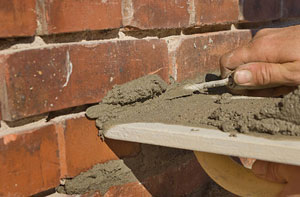 Repointing Street
Repointing Street Bricklayer Street
Bricklayer StreetMore: Crack Stitching, Pointing, Brickwork Repointing, Stone Cladding, Brick Fireplaces, Brick Pointing, Masonry Work, Brick Repointing, Masonry Work, Brick Cleaning, Interior Brickwork, Crack Stitching, Brick Porches, Repointing, Brick Arches, Repointing, Brick Repairs, Brickwork Pointing, Stonework, Pointing, Interior Brickwork, Brick Repointing, Brickwork Pointing, Pointing, Stonemasonry, Brick Cleaning, Brickwork Pointing, Brickwork Repointing, Bricklayer, Brick Porches.
Bricklaying Jobs Street: If you are looking for bricklaying jobs in Street check out this webpage: Bricklaying Jobs Street
For the best local information relating to Street, Somerset take a look here
Bricklayers in BA16 area, 01458.
TOP - Bricklaying Street - Bricklayers Street
Chimney Building Street - Brickwork Street - Stonework Street - Bricklayers Near Me - Repointing Street - Block Paving Street - Stonemasonry Work Street - Blockwork Street - Garden Walls Street





